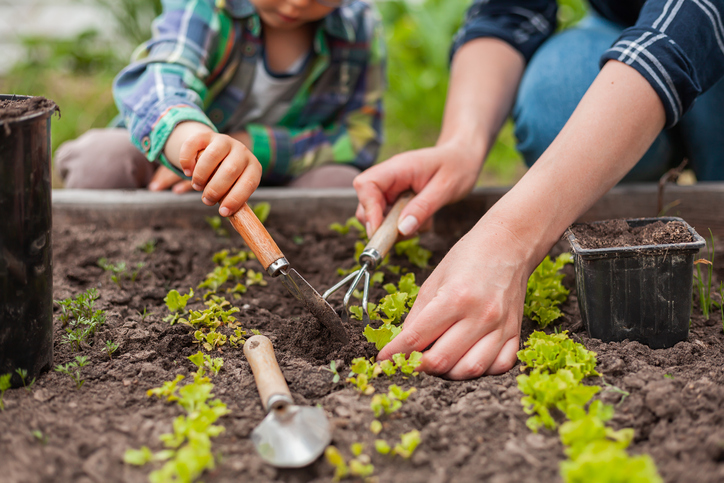
Starting your first garden can feel exciting and overwhelming at the same time. On the one hand, you can’t wait to pick fresh veggies from your garden for dinner. At the same time, you don’t want to make any critical mistakes. Fortunately, you can leave that overwhelming feeling behind by following these easy gardening tips for beginners.
Choose a Spot With Enough Sunlight
Crops need sunlight to thrive, so plant your garden in a spot that receives at least six hours of direct sunlight daily. If you’re growing tomatoes, knock that up to eight hours of sunlight for the best results.
What if you can’t find a good spot with that much sunlight? If that’s the case, consider growing green veggies. They do well in both direct and partial sunlight, giving you more flexibility when selecting a spot for your garden.
Set up Easy Access to Water
Hauling cans of water is exhausting, so you want to avoid that if possible. If you want a simple fix, set up a garden hose close to your garden. Ensure it has a sprayer attachment, so you can easily water the crops.
If you have a little more money to play with, you can set up a drip irrigation system. This costs more money upfront, but you’ll use less water. Plus, you can set it up to water at specific times, so you won’t have to do the hard work yourself.
Choose the Right Veggies for Your Garden
New gardeners tend to go all out when planting for the first time. They end up with a ton of vegetables they don’t like, so they toss them instead of eating them. Growing a garden takes a fair amount of time and energy, so don’t waste your resources on veggies destined for the garbage can. Instead, fill your garden full of food you’ll devour.
You might also like: Save Money By Shopping Your Pantry
Get Your Soil Ready
Choosing the right soil can also make or break your garden. First, you need soil with good drainage, which is why sandy loam is popular with gardeners. However, sandy loam doesn’t provide crops with enough nutrients, so you’ll need to mix organic matter in to give your plants a boost. For instance, you can add leaf mold or compost to your soil. Manure also works, but make sure you compost it for at least six months first. Otherwise, it might destroy the plants.
Now that you know the basics, you’re almost ready to start your first garden. First, decide what you want to plant and pick a location. Then get everything ready and start growing. Before long, you’ll be enjoying that sense of satisfaction that comes with growing fresh veggies for your family.
Disclaimer: The stock image is being used for illustrative purposes only, and it is not a direct representation of the business, recipe, or activity listed. Any person depicted in the stock image is a model.

